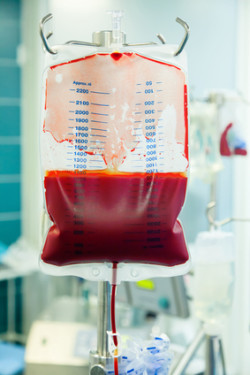Top Class Actions’s website and social media posts use affiliate links. If you make a purchase using such links, we may receive a commission, but it will not result in any additional charges to you. Please review our Affiliate Link Disclosure for more information.

Approved in 2012, Eliquis is prescribed as a once daily medication to treat the following:
- Atrial fibrillation (irregular heartbeat)
- Deep Vein Thrombosis (DVT) and pulmonary embolisms
- Reduce blood clot risks in hip surgeries
How Does Eliquis Work?
Eliquis works the same way Xarelto does. Anticoagulants like Eliquis block an enzyme during the blood clotting process to prevent a protein from forming. As a result, blood does not clot as easily.
Before Eliquis and the other new blood thinners came on the market, doctors most often prescribed Coumadin, generically known as warfarin.
Eliquis has been touted as a better anticoagulant, commonly called a blood thinner, because it can be taken once a day and blood levels do not require monitoring.
When on warfarin, a patient needs to take INR (international normalized ration) blood tests to determine how fast the blood clots. This test helps maintain the right dosage.
In the event a person needs to have warfarin’s anticoagulant properties halt due to accident or injury, a number of options for reversal are available, including vitamin K.
There is no antidote for Eliquis bleeding.
Eliquis Common Side Effects
Eliquis has a number of possible side effects which include:
- Bruising more easily
- Developing a skin rash
- Internal bleeding
- Brain hemorrhaging
- Kidney bleeding
- Uncontrolled bleeding
- Intestinal bleeding
- Deep vein thrombosis
- Possible bleeding during pregnancy
- Blood clot from premature treatment discontinuation
- Death
The bleeding side effects are the most dangerous. Signs of severe bleeding problems include:
- Unexpected bleeding or bleeding that lasts a long time, such as unusual bleeding from the gums, nosebleeds that happen often, or menstrual or vaginal bleeding that is heavier than normal
- Bleeding that is severe or you cannot control
- Red, pink, or brown urine; red or black stools (looks like tar)
- Coughing up or vomiting blood or vomit that looks like coffee grounds
- Unexpected pain, swelling, or joint pain
- Headaches, or feeling dizzy or weak
Eliquis Data Changed for FDA Approval
The FDA said that Bristol-Myers Squibb and Pfizer did not adequately control a large Eliquis clinical trial that was centered in China. A senior clinical manager at the China site allegedly changed records to cover up violations of standardized clinical practice guidelines.
The manager and two other employees were fired for failing to report four adverse events, reporting three adverse events late and leaving three medical outcomes out of the data.
The FDA found even further inaccuracies. English and Chinese data reports didn’t match. Several patients names and birth dates were inaccurate.
Some patients actually received twice the dose they were supposed to have been given, while some patients received no medication at all. By receiving no anticoagulant therapy at all, these patients were at a risk of stroke.
When the FDA oversaw an application review, one official wrote that if the agency had known of the problems with quality control in the clinical study, the FDA would have never reviewed the application for drug approval based on that data. The data made it difficult to determine Eliquis common side effects with accuracy.
The FDA approved Eliquis after deciding that data from other trials proved adequate to support its safety and effectiveness, despite the China debacle.
If you or a family member has taken Eliquis and suffered severe bleeding or other debilitating Eliquis common side effects, you could be eligible for compensation for lost wages, hospitalizations and other expenses.
Do YOU have a legal claim? Fill out the form on this page now for a free, immediate, and confidential case evaluation. The Eliquis attorneys who work with Top Class Actions will contact you if you qualify to let you know if an individual lawsuit or Eliquis class action lawsuit is best for you. [In general, Eliquis lawsuits are filed individually by each plaintiff and are not class actions.] Hurry — statutes of limitations may apply.
Get Help – It’s Free
Join a Free Eliquis Class Action Lawsuit Investigation
If you or a loved one took Eliquis (apixaban) and suffered injuries such as uncontrollable internal bleeding, gastrointestinal bleeding, hemorrhaging, kidney bleeding or death, you may have a legal claim. See if you qualify by filling out the short form below.
An attorney will contact you if you qualify to discuss the details of your potential case at no charge to you.
Please Note: If you want to participate in this investigation, it is imperative that you reply to the law firm if they call or email you. Failing to do so may result in you not getting signed up as a client, if you qualify, or getting you dropped as a client.
Oops! We could not locate your form.
ATTORNEY ADVERTISING
Top Class Actions is a Proud Member of the American Bar Association
LEGAL INFORMATION IS NOT LEGAL ADVICE
Top Class Actions Legal Statement
©2008 – 2024 Top Class Actions® LLC
Various Trademarks held by their respective owners
This website is not intended for viewing or usage by European Union citizens.












